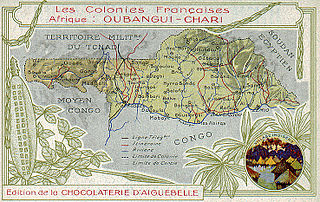
United Nations Security Council Resolution 1919, adopted unanimously on April 29, 2010, after recalling resolutions 1674 (2006), 1894 (2009) on the protection of civilians in armed conflict, 1612 (2005) and 1882 (2009) on children in armed conflict, 1502 (2003) on the protection of humanitarian and United Nations personnel, and 1325 (2000), 1820 (2008), 1888 (2009), and 1889 (2009) on women, peace, and security, the Council extended the mandate of the United Nations Mission in Sudan (UNMIS) until April 30, 2011 with the intention of renewing it further if necessary.
United Nations Security Council resolution 1159, adopted unanimously on 27 March 1998, after reaffirming resolutions 1125 (1997), 1136 (1997), 1152 (1998) and 1155 (1998), regarding the situation in the Central African Republic, the council established the United Nations Mission in the Central African Republic (MINURCA).

United Nations Security Council resolution 1182, adopted unanimously on 14 July 1998, after reaffirming resolutions 1125 (1997), 1136 (1997), 1152 (1998), 1155 (1998) and 1159 (1998) regarding the situation in the Central African Republic, the Council extended the mandate of the United Nations Mission in the Central African Republic (MINURCA) until 25 October 1998.

United Nations Security Council resolution 1201, adopted unanimously on 15 October 1998, after reaffirming resolutions 1125 (1997), 1136 (1997), 1152 (1998), 1155 (1998), 1159 (1998) and 1182 (1998) regarding the situation in the Central African Republic, the Council extended the mandate of the United Nations Mission in the Central African Republic (MINURCA) until 28 February 1999.

United Nations Security Council resolution 1202 was adopted unanimously on 15 October 1998, after reaffirming Resolution 696 (1991) and all subsequent resolutions on Angola, including Resolution 1196 (1998) on Africa. The council extended the mandate of the United Nations Observer Mission in Angola (MONUA) until 3 December 1998.

United Nations Security Council resolution 1206, adopted unanimously on 12 November 1998, after recalling all resolutions on the situation in Tajikistan and along the Tajik-Afghan border, the Council extended the mandate of the United Nations Mission of Observers in Tajikistan (UNMOT) for a further six months until 15 May 1999.

United Nations Security Council resolution 1225, adopted unanimously on 28 January 1999, after reaffirming all resolutions on Georgia, particularly Resolution 1187 (1998), the Council extended the mandate of the United Nations Observer Mission in Georgia (UNOMIG) until 31 July 1999, and expressed an intention to review its mandate.

United Nations Security Council resolution 1228, adopted unanimously on 11 February 1999, after reaffirming all previous resolutions on the question of the Western Sahara, particularly resolutions 1204 (1998) and 1215 (1998), the Council extended the mandate of the United Nations Mission for the Referendum in Western Sahara (MINURSO) until 31 March 1999 to allow time for consultations on issues relating to a proposed referendum.
United Nations Security Council resolution 1240, adopted unanimously on 15 May 1999, after recalling all resolutions on the situation in Tajikistan and along the Tajik-Afghan border, the Council extended the mandate of the United Nations Mission of Observers in Tajikistan (UNMOT) for a further six months until 15 November 1999.

United Nations Security Council resolution 1247, adopted unanimously on 18 June 1999, after recalling resolutions 1031 (1995), 1035 (1995), 1088 (1996), 1103 (1997), 1107 (1997), 1144 (1997), 1168 (1998), 1174 (1998) and 1184 (1998), the Council extended the mandate of the United Nations Mission in Bosnia and Herzegovina (UNMIBH) for a period terminating on 21 June 2000 and authorised states participating in the NATO led Stabilisation Force (SFOR) to continue to do so for a further twelve months.

United Nations Security Council resolution 1271 was adopted unanimously on 22 October 1999, after reaffirming all resolutions on the situation in the Central African Republic, including resolutions 1159 (1998), 1201 (1998) and 1230 (1999). The Council extended the mandate of the United Nations Mission in the Central African Republic (MINURCA) until 15 February 2000 with a view to its transition from a peacekeeping operation to a post-conflict peace-building presence.

United Nations Security Council resolution 1273, adopted unanimously on 5 November 1999, after reaffirming resolutions 1234 (1999) and 1258 (1999) on situation in the Democratic Republic of the Congo, the Council extended the deployment of the 90 military liaison personnel as part of efforts to assist the peace process in the country until 15 January 2000.

United Nations Security Council resolution 1289 was adopted unanimously on 7 February 2000. After recalling resolutions 1171 (1998), 1181 (1998), 1231 (1999), 1260 (1999), 1265 (1999) and 1270 (1999) on the situation in Sierra Leone, the Security Council extended the mandate of the United Nations Mission in Sierra Leone (UNAMSIL) for a period of six months and expanded its military component.

United Nations Security Council resolution 1514, adopted unanimously on 13 November 2003, after reaffirming Resolution 1479 (2003) on the situation in Côte d'Ivoire and resolutions 1464 (2003) and 1498 (2003), extended the mandate of the United Nations Mission in Côte d'Ivoire (MINUCI) until 4 February 2004.

United Nations Security Council Resolution 1962, adopted unanimously on December 20, 2010, after recalling previous resolutions on the situation in Côte d'Ivoire, including resolutions 1893 (2009), 1911 (2010), 1924 (2010), 1933 (2010), 1942 (2010), 1946 (2010) and 1951 (2010), the Council extended the mandate of the United Nations Operation in Côte d'Ivoire (UNOCI) until June 30, 2011 and urged all Ivorian parties to respect the outcome of the presidential election and the recognition of Alassane Ouattara as president.
United Nations Security Council Resolution 1671, adopted unanimously on April 25, 2006, after recalling previous resolutions concerning the situation in the Democratic Republic of the Congo, particularly resolutions 1565 (2004), 1592 (2005), 1621 (2005) and 1635 (2005), the Council authorised the deployment of the European Union's EUFOR RD Congo force to assist the United Nations Mission in the Democratic Republic of the Congo (MONUC) during the 2006 general elections.

United Nations Security Council Resolution 1711, adopted unanimously on September 29, 2006, after recalling all previous resolutions concerning the situation in the Democratic Republic of the Congo, including resolutions 1565 (2004), 1592 (2005), 1596 (2005), 1621 (2005), 1628 (2005), 1635 (2005), 1671 (2006) and 1693 (2006), and resolutions 1650 (2005), 1669 (2006), 1692 (2006) on the situation in Burundi and the African Great Lakes region, the Council extended the mandate of the United Nations Mission in the Democratic Republic of Congo (MONUC) until February 15, 2007.
United Nations Security Council Resolution 1880 was unanimously adopted on 30 July 2009.

The Bangui Agreements are a 1997 negotiated peace accord in the Central African Republic (CAR). The accord was drawn up in Bangui to bring an end to the 1990s conflict between government and rebel forces. It was signed by the Patassé government, opposition parties and religious groups. The agreement envisaged several steps to sort out the views of various political factions, reorganize the defense establishment, and implement reforms in the country to improve its economy.

The United Nations Mission in the Central African Republic, more commonly known as MINURCA was a United Nations peacekeeping force in the Central African Republic. The 1350-troop mission was established by the United Nations Security Council Resolution 1159 in March 1998. It was replaced in 2000 after the Central African Republic conducted two peaceful elections, with the entirely civilian composed UN Peace-Building Support Office in the Central African Republic (BONUCA).















